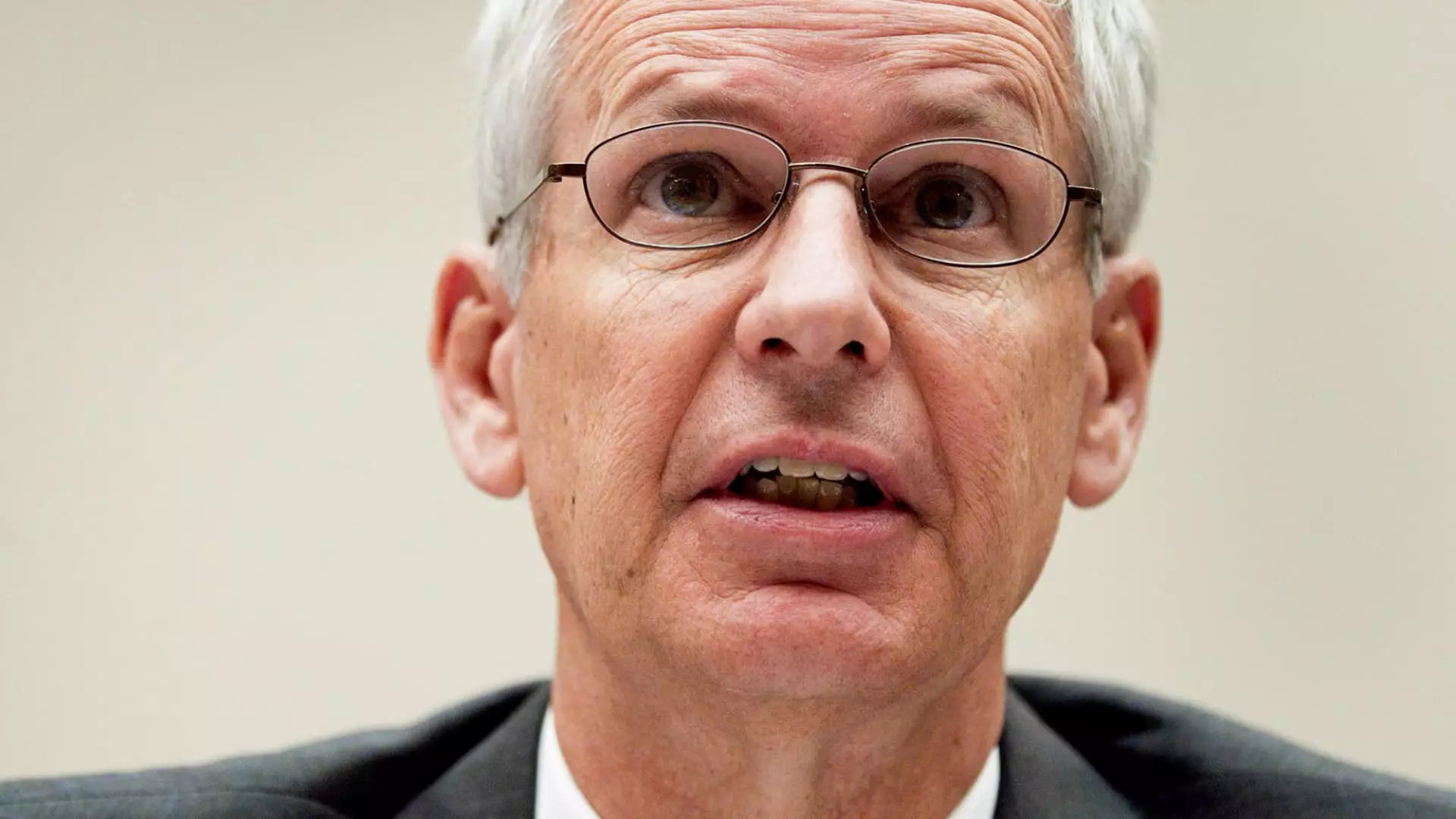Dish Network’s tumultuous journey can be compared to the infamous finale of the sitcom “Seinfeld,” which ended on a note that disappointed many fans. Much like the series, Dish’s strategy seemed to be rife with beginnings that lacked resolution. The reference to “Seinfeld” is not simply a casual analogy; co-founder Charlie Ergen has often referred to the show when describing the company’s uncertain trajectory. In an earnings call back in 2011, he noted the show’s narrative structure—multiple plot lines culminating in a resolution. However, for Dish, the anticipated resolution never quite materialized, culminating instead in a lackluster conclusion that left shareholders and subscribers alike feeling jaded.
As EchoStar, Dish’s parent company, prepares to sell the pay-TV provider to DirecTV for a nominal fee of $1 plus an overwhelming $9.75 billion in associated debt, analysts are scrutinizing the company’s waning influence in a dire shifting market. EchoStar’s shares saw a significant decline—over 11%—post-announcement, illustrating the harsh reality that Disaster has become synonymous with Dish in recent years. This financial blow aims to alleviate the strain as the company grapples with an industry slowly fading into obscurity.
The rapid evolution of consumer preferences has come at a high cost for traditional cable and satellite providers like Dish. Millions of subscribers have opted out of traditional pay-TV services for affordable streaming alternatives provided by companies such as Comcast and Charter. Combined with DirecTV, the two companies have shed an alarming 63% of video subscribers since 2016, a trend that leaves an indelible mark on the industry outlook. As Hamid Akhavan, EchoStar’s CEO, stated during a recent CNBC interview, “Times have changed,” encapsulating the very essence of the dilemmas facing Dish.
Dish Network’s enterprise value has similarly plummeted. A mere decade ago, discussions surrounding a potential merger between Dish and DirecTV indicated promising prospects—both companies were evaluated at substantial market paradigms. Dish’s stubborn independence proved to be its Achilles’ heel, leaving it bereft of strategic partnerships that could have bolstered its faltering presence amid an evolving digital landscape. Instead, it opted to sell its assets at a fraction of their worth, a decision that echoes the idea of squandered opportunities that riddled “Seinfeld’s” later seasons.
Dish has faced significant obstacles in its attempts to diversify into the wireless space. Despite acquiring Boost Mobile from T-Mobile for $1.4 billion in 2019 as part of the company’s strategy to establish a foothold in the mobile market, the venture has been marred by challenges. The absence of a solid financial foundation compelled the company to operate on a tightrope—trying to maintain its pay-TV legacy while developing a network to rival incumbent telecom giants such as AT&T, Verizon, and T-Mobile. The struggle to allocate resources appropriately, coupled with a diminishing subscriber base, has strained Dish’s operational capabilities.
Akhavan aptly pointed out, “We couldn’t feed the [wireless] business properly,” highlighting the internal conflict that arises when a company’s focus is divided. This misguided ambition resulted in an overarching distraction that seemingly hindered rather than helped Dish maneuver through turbulent waters. The frantic yet directionless movement mirrors how plot lines in the “Seinfeld” finale left viewers longing for a cohesive narrative.
As the final curtain descends on Dish Network’s saga, it mirrors the enigmatic disappointment of “Seinfeld’s” series finale. While the show once captivated audiences with its sharp wit and intricate plot lines, its conclusion left many yearning for a more satisfying resolution. Similarly, the trajectory of Dish Network illustrates a story rife with potential that ultimately succumbed to mismanagement and market shifts. A once-promising player in the cable landscape now faces the harsh reality of an indeterminate future, leaving its legacy overshadowed by the echoing phrase: they had it all but lost their way.


Leave a Reply